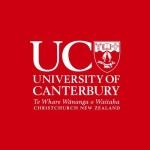UC researcher develops smart way to manage water
A University of Canterbury academic has developed new methods that can help groundwater catchment managers match users' rights with scarce water resources.
In a paper titled "Matching users' rights to available groundwater", published in the journal Ecological Economics, Dr John Raffensperger (Management) outlines a number of methods that use the framework of a smart market to align users' rights to available water in an efficient and sustainable manner.
A smart market consists of a daily or weekly auction in which commercial users trade water, cleared by a computer model. The computer model balances water in the catchment over time, ensuring rivers have flows and aquifers have sustainable levels.
Rather than having to find a buyer or seller and then get government approval, users buy and sell through a common "pool." A catchment manager pays users who are willing to sell, and gives more water to those who would pay for it.
Dr Raffensperger said the amount of available groundwater in a catchment changes quickly, and the amount of water that users can take sustainably depends on where and when it is taken.
"However, rights to water tend to be fixed, and obtaining rights to water incurs high transaction costs. As a result, water catchments are over-allocated worldwide. In this paper, I show how a catchment manager could match users' rights to the available water, in near real time, despite uncertain future inflows, while making effective use of all available hydrological data," he said.
Dr Raffensperger said the smart market framework provides a way to adjust initial rights "and the auction revenue reflects the available water relative to users' rights".
"When the auction is revenue neutral, the catchment may be viewed as allocated perfectly. I suggest several ways in which a catchment manager can find this revenue-neutral allocation, assuming the manager has authority to adjust initial rights."
He said rather than under or over-allocation, water in the catchment can be allocated perfectly using these methods.
"If rights can be adjusted, these allocation methods will work despite future uncertainty."
Dr Raffensperger's paper can be found online at http://www.sciencedirect.com/science/article/pii/S0921800911000437.
